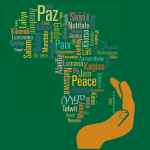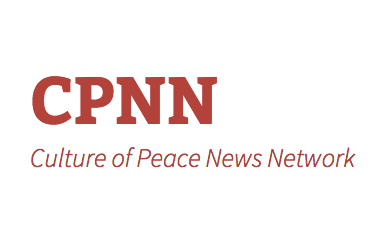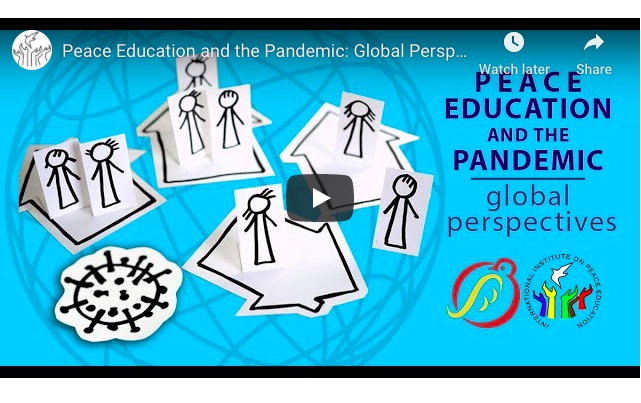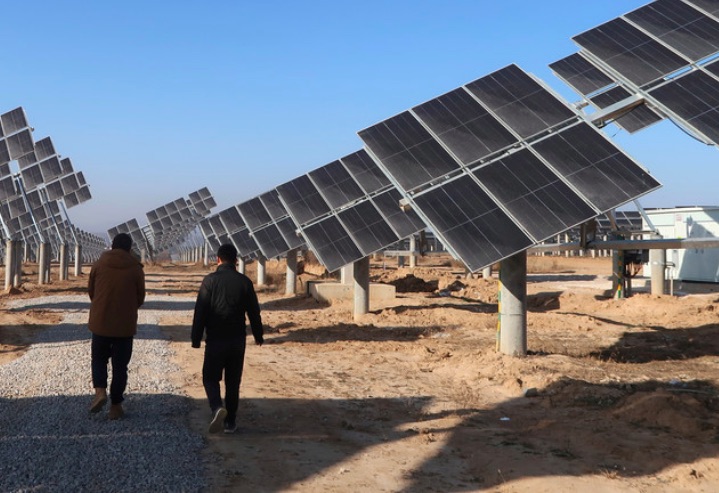Charting the Way Forward
In the month since we wrote in our bulletin that “the medical and economic crisis associated with the coronavirus can be seen as an opportunity as well as a calamity,” many analysts have taken this position and proposed how we can move forward. This includes proposals regarding all aspects of the culture of peace:
Disarmament and Security: Three former Royal Navy Commaders of the United Kingdom sent a letter to parliament saying that the 2 billion pounds a year spent on nuclear submarines cannot be justified and the money should be used for health care. The activist David Swanson in the United States proposes that the American Department of Defense should be converted from military operations and should work for universal financial and medical security. Reacting to the latest American threat of war, that against Venezuela, it is said that “the US should fight COVID, not Venezuela” and that “President Trump has no business deploying US military assets threatening Venezuela.”
Readers will recall that last month we published similar calls from the International Peace Bureau and the Peace Pledge Union to convert military budgets to money for health care, and the call by UN Secretary-General for a global ceasefire.
Solidarity: Around the world, people have responded to the crisis with actions of local solidarity to care for those who are vulnerable to the pandemic. A good example comes to us from the youth of Gabon who are providing water stations for the people living in poor areas. As expressed by the organization Tamara, in Portugal “the crisis represents a great opportunity, in addition to all its challenges: now, we have the opportunity to join forces worldwide to achieve a shared goal, develop social cohesion, set up decentralized structures, a solidarity economy – a genuine reboot.”
Democratic participation: The Moroccan professor Abdelmoughit Benmassoud Tredano states that the economic crisis has only just begun. He repeats the call for solidarity: “at the individual, group and national level, individualism is outdated and solidarity is needed instead.” “This certainly implies rethinking the organization of the world on all levels . . . the organization of the world by regional groups must be adopted because no single state can stand alone, unless it is an entire continent.” According to the Council of Europe, Iin many countries, the lead is being taken by cities rather than the state. They provide the example of Raseborg in Finland.
Women’s equality: Nazra Feminist Studies of Egypt proposes that we adopt the feminist values “such as joining forces in times of fear, loss and build, collective responsibility and action towards our survival, international cooperation and collectiveness in order to understand and identify ways to overcome this crisis.”
In the short term sustainable development has been set back by the pandemic, but according to the World Economic Forum, “now is the time to start redirecting the $5.2 trillion spent on fossil-fuel subsidies every year toward green infrastructure, reforestation, and investments in a more circular, shared, regenerative, low-carbon economy.”
Education for peace: In a recent webinar by he International Institute on Peace Education and Global Campaign for Peace Education, educators from the USA, Austria, Puerto Rico, South Africa, China, Nigeria, Philippines, Mexico, Colombia, Argentina and South Korea shared how they are responding to the pandemic and associated systemic violence and injustices.
“How human rights can help protect us from COVID-19″ is the title of an article from Amnesty International, stressing the need to protect the human rights to health, access to information, employment, housing, water, sanitation and freedom from discrimination.
Free flow of information. According to the United Nations Conference on Trade and Development, the global crisis has pushed us further into a digital world. There has been a leap in teleworking and online conferencing, but only 20% of the population in the least developed countries use the internet, so the world needs a coordinated multilateral response to deal with the challenge of digitalization.
Of course, the eight aspects of the culture of peace are all inter-related and need to be addressed in coordination. This is seen in the following analyses.
Mazin Qumsiyeh sends us a global call from Palestine Action for the Planet which calls for democratization of the United Nations, reorganization of development priorities, drastic reduction in military spending, defense of democratic participation, global solidarity and restoration of ecological balance (“We humans must recognize ourselves as part of nature and live in harmony with it”).
William Astore, a retired lieutenant colonel (USAF) and professor of history, gives us seven suggestions “to change America” [and, we may add, “to change the world”]. The first is to reduce military spending and the next two are to reduce the 800 US military bases around the world and to abandon the plan for waging two major foreign wars at the same time. He calls for a Works Progress Administration to rebuild America’s infrastructure and reinvigorate our culture (like that of President Roosevelt during the depression). He calls for “an end to fear-mongering and warmongering, and to recognize as true heros not warriors and sports stars, but rather those who are on the frontlines against the coronavirus. And “finally, we must extend our love to encompass nature, our planet.”
Nobel Peace Laureat Mairead Maguire reminds us that “If this virus has done anything, it has reminded us that we are only human and very vulnerable; we need each other to survive and thrive. If anything, this virus hopefully will cement the opinion that we are All One, brothers and sisters; what affects one affects all. . . . Government policies of sanctions, militarism, nuclear weapons and war must be radically replaced by government policies that put their citizen’s health – both physical and mental – on top of the political agenda. . . . Capitalism does not work, the system is broken, and we are all challenged to build a system of real democracy that works for everyone.”
Another Nobel Peace Laureate, Mikhail Gorbachev, calls for a “radical rethinking of international politics . . . Is it not clear by now that wars and the arms race cannot solve today’s global problems? War is a defeat, a failure of politics! . . . We need to demilitarize world affairs, international politics and political thinking and reallocate funds from military purposes to the purposes serving human security. We need to rethink the very concept of security. Above all else, security should mean providing food, water, which is already in short supply, a clean environment and, as top priority, caring for people’s health.”
Finally, here at CPNN, we are providing additional tools and proposals in our blog to chart the way forward, to take advantage of the crisis to reform the world’s governance structure and make the transition from the culture of war to a culture of peace.
| WOMEN’S EQUALITY
From Nazra for Feminist Studies (Egypt): A Letter of Solidarity; Together, We Stand in Solidarity..To Build |
FREE FLOW OF INFORMATION
Coronavirus reveals need to bridge the digital divide |
HUMAN RIGHTS
Amnesty International: How human rights can help protect us from COVID-19 |
DEMOCRATIC PARTICIPATION
Covid-19: A new organization of the world is essential (Moroccan university professor) |
| EDUCATION FOR PEACE
Peace Education and the Pandemic: Global Perspectives (video now available) |
SUSTAINABLE DEVELOPMENT
Could COVID-19 give rise to a greener global future? |
TOLERANCE & SOLIDARITY
|
DISARMAMENT & SECURITY
Threatening Military Intervention in Venezuela During a Pandemic? |









